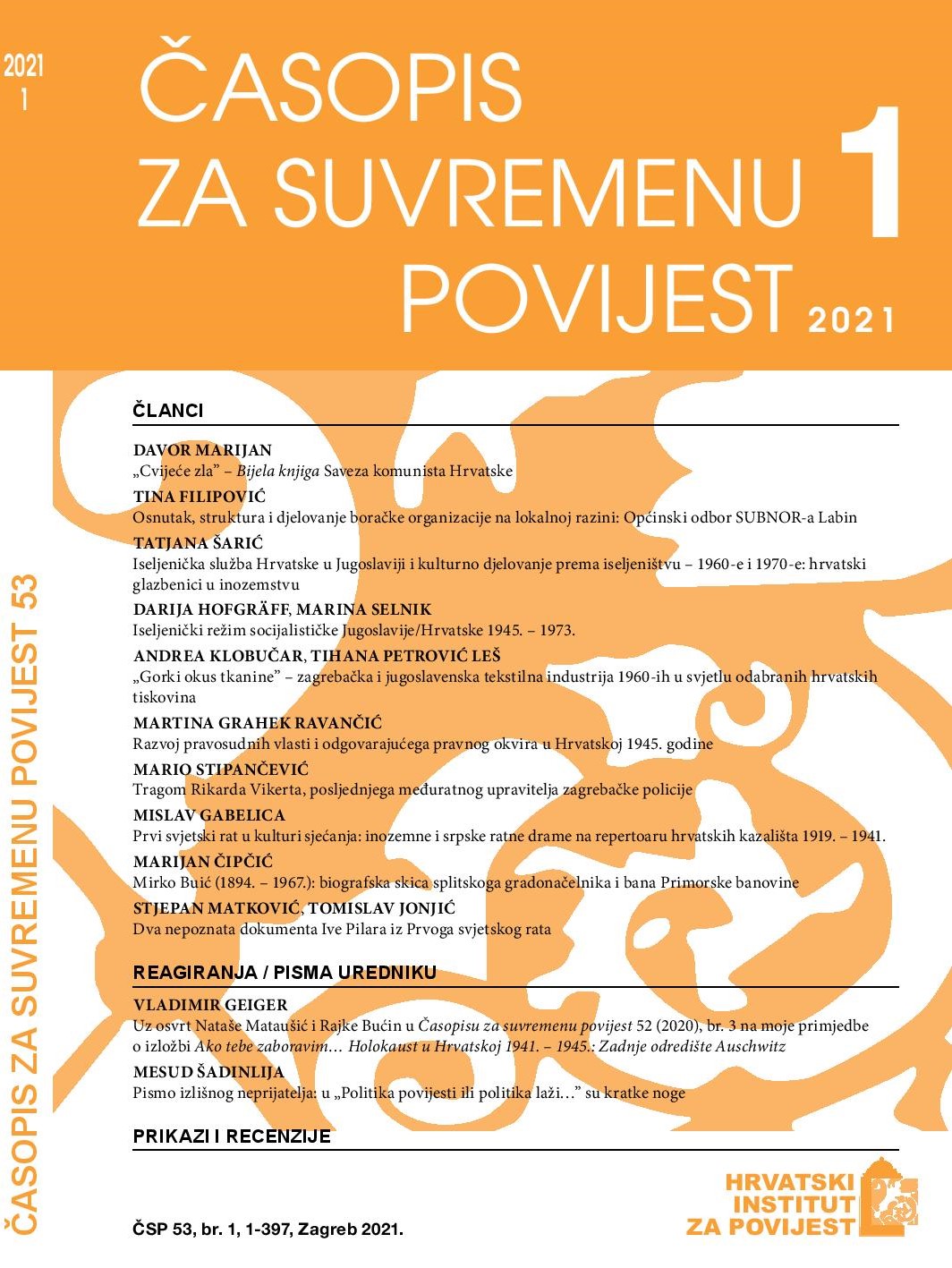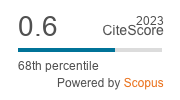The Emigration Service of Croatia in Yugoslavia and its Cultural Activities towards the Emigration in the 1960s and 1970s: Croatian Musicians Abroad
DOI:
https://doi.org/10.22586/csp.v53i1.11778Keywords:
cultural policy; Yugoslavia; Croatia; musical guest performances; emigrants; Ivo Robić; Vice VukovAbstract
Based on the original archives, the paper explores one aspect of the cultural policy of Yugoslavia and Croatia towards emigration—guest appearances by music artists and cultural and artistic societies in the countries of emigration in the 1960s and 1970s. The policy towards emigrants, especially ‘temporary workers abroad’, has been particularly important since the early 1960s, as emigration began to be perceived as a vital force, for both political and economic reasons. Therefore, the emigration service in the 1960s expanded and operated through several working bodies at the federal and republican levels, and played an essential role in the formation and implementation as well as the supervision of cultural policy towards emigrants. The idea was to maintain and strengthen the influence of self-managing socialist Yugoslavia in the ‘Seventh Republic’, and to neutralise the impact of political émigrés averse to the communist regime as much as possible. Music, as a segment of cultural policy, was a trump card that was known to have good reception with the audience, and guest appearances by musicians—singers and cultural and artistic societies—became very popular and frequent in Western Europe and overseas. Visits thus became a medium of ideological and promotional activities towards emigrants; organisers, performers, programs, and performances were regularly monitored by the state and Party bodies, diplomatic missions, and the State Security Service. Among the implementers of cultural policy towards emigrants, a significant role was played by the Heritage Foundation of Croatia, which operated according to the instructions of state and Party bodies, but had the best insight into the situation among immigrants and maintained continuous relations with them. Yugoslavia’s efforts to gain organisational and ideological control over musical guest appearances are further illustrated through the examples of two Croatian popular singers—Ivo Robić and Vice Vukov.
Downloads
Published
How to Cite
Issue
Section
License
Copyright (c) 2021 authors and journal

This work is licensed under a Creative Commons Attribution-NonCommercial 4.0 International License.
Copyright holders are the publisher Croatian Institute of History and the authors. Journal of Contemporary History is an Open Access journal. Users are allowed to read, download, copy, redistribute, print, search and link to material, and alter, transform, or build upon the material, or use them for any other lawful purpose as long as they attribute the source in an appropriate manner according to the Creative Commons licence CC BY-NC. The papers published in Journal of Contemporary History can be deposited and self-archived in the institutional and thematic repositories providing the link to the journal's web pages and HRČAK. Journal does not charge article processing charges (APC). The editors assume no responsibility for statements of fact or opinion made by contributors.




